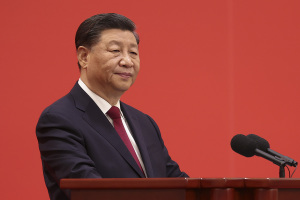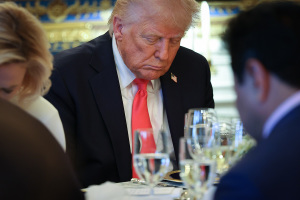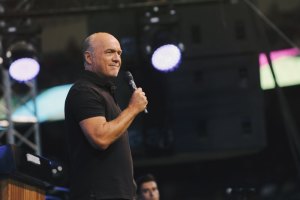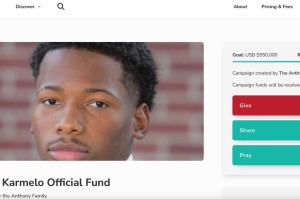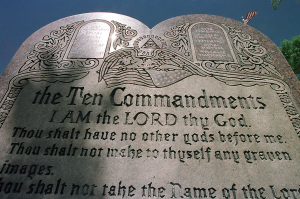Supreme Court sides with Christian student barred from preaching on Ga. college campus
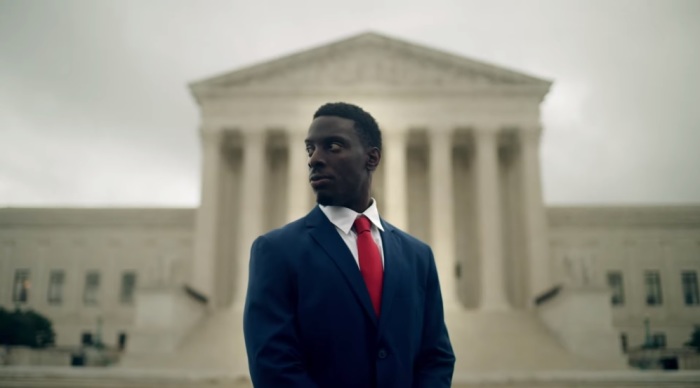
A former student at a Georgia college prohibited from preaching on campus can seek compensation, the U.S. Supreme Court ruled Monday.
In an 8-1 decision in Uzuegbunam v. Preczewski, the high court concluded that Chike Uzuegbunam can seek nominal damages from Georgia Gwinnett College.
The opinion reversed a decision from the 11th U.S. Court of Appeals and remanded the case for additional proceedings following the Supreme Court opinion's reasoning.
Justice Clarence Thomas authored the majority opinion and. Justices Samuel Alito, Stephen Breyer, Amy Coney Barrett, Neil Gorsuch, Elena Kagan, Brett Kavanaugh and Sonia Sotomayor also sided with the majority.
“For purposes of this appeal, it is undisputed that Uzuegbunam experienced a completed violation of his constitutional rights when respondents enforced their speech policies against him,” concluded Thomas.
“Because ‘every violation [of a right] imports damage’ … nominal damages can redress Uzuegbunam’s injury even if he cannot or chooses not to quantify that harm in economic terms.”
Chief Justice John Roberts authored a dissent opinion, arguing that Uzuegbunam and fellow plaintiff Joseph Bradford have many problems with their litigation. Roberts said those problems include the fact that they have graduated, the policies of the college were changed and “the petitioners have not alleged actual damages.”
“In the Court’s view, nominal damages can save a case from mootness because any amount of money — no matter how trivial — ‘can redress a past injury,’” wrote Roberts.
“But an award of nominal damages does not alleviate the harms suffered by a plaintiff, and is not intended to. If nominal damages can preserve a live controversy, then federal courts will be required to give advisory opinions whenever a plaintiff tacks on a request for a dollar.”
An evangelical Christian, Uzuegbunam was restricted in 2016 by school officials from preaching and handing out literature at an outdoor plaza on the public college's campus. He was told that student free speech exercises were restricted to two areas of the college's campus.
He later reserved a designated free speech zone so he could distribute religious literature and speak about his beliefs. But he was approached by campus police and asked to stop because the police had received "some calls" about his preaching. The student was informed that the free speech zone was not reserved for "open-air speaking" and he was in violation of the "Student Code of Conduct."
Uzuegbunam pursued legal action against Gwinnett, with fellow student Bradford joining the litigation because the restrictions hindered him from preaching on campus.
Although the school changed its policy on free speech and expression since stopping Uzuegbunam from preaching, they refused to accept a penalty for their past actions.
In July 2019, a three-judge 11th Circuit panel issued a per curiam decision against the students, affirming an earlier lower court decision labeling the case moot.
Represented by Kristen Waggoner of the Alliance Defending Freedom, the students appealed to the Supreme Court, which heard oral arguments in January.
During the arguments, Waggoner argued that the students “lost forever the chance to get those days back and speak their message to their peers.”
“The Supreme Court has rightly affirmed that government officials should be held accountable for the injuries they cause. When public officials violate constitutional rights, it causes serious harm to the victims," Waggoner said in a statement Monday. "Groups representing diverse ideological viewpoints supported our clients because the threat to our constitutionally protected freedoms doesn’t stop with free speech rights or a college campus."
Waggoner contended during the oral arguments English and U.S. courts have for centuries "awarded nominal damages when no future threat exists, even after a plaintiff waives compensatory damages.”
"Officials within our public institutions shouldn’t get a free pass for violating constitutional rights on campus or anywhere else," she added. "When such officials engage in misconduct but face no consequences, it leaves victims without recourse, undermines the nation’s commitment to protecting constitutional rights, and emboldens the government to engage in future violations. We are pleased that the Supreme Court weighed in on the side of justice for those victims.”
Andrew Pinson, representing the college, said at oral arguments that “nominal damages can't serve as independent redress for purely past injuries,” like those experienced by the students.
“Petitioners haven't cited a single common law case that decided the merits of a legal claim where a plaintiff had sought only nominal damages and awarding them couldn't affect the plaintiff's ongoing legal rights or interests,” Pinson said at the time.
“Without a working theory for how nominal damages can actually redress past injuries or historical evidence for that claim, the conclusion has to be that they aren't retrospective relief that saves the case from mootness when there's no longer a threat of continuing injury.”














